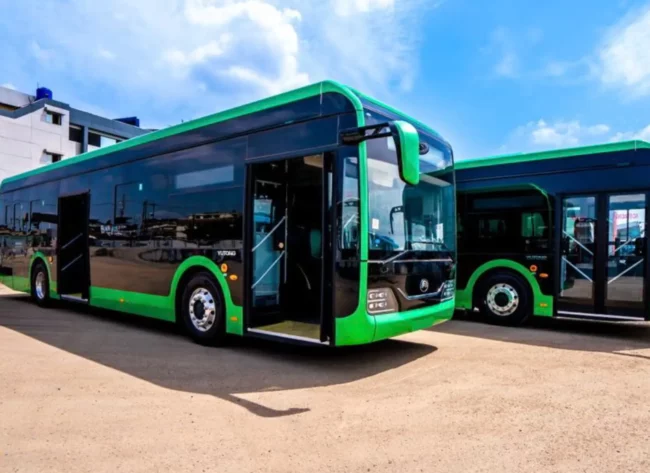He said, “We have signed up on the fares; we have agreed about how it will be operated and how the money will come back to the fund so that more buses will be acquired.
“Based on the president’s directive on July 31, 2023, we will make the buses available to mass transit operators on certain commercial terms.
The terms are much easier and better. This is to ensure that the money that comes back will be used to buy additional buses that can then continue to be made available to the Nigerian people.
In the first phase we are getting about 500 buses. As the buses are being used and commuters are paying for it, part of that goes into a fund that can then be used to buy more buses. That way, we are also creating jobs. These buses were assembled in Nigeria.
If you use the buses, you pay your fare and it is much cheaper than what you currently pay. The people operating it will also operate it conscientiously to make sure that the fund as is being polled can provide more buses for Nigeria.
“They can be inter-state or intra-state. Some of the beneficiaries in Lagos is a collaboration between the traditional institution and private sector.
Some of them are not government owned; some are private sector owned; some of them are traditional institution owned.
They will determine how it will be deployed based on their need. But those needs are already made known to us.”
Receiving the buses, the Chairman, Oyo Pacesetter Transport Services, Dr Salami Dikko said the state keyed into the CNG initiative and was looking at modalities to covert its own mass transit buses to be CNG-powered.
Noting that the state was planning on the manner of deployment of the 20 buses received, he urged the federal government to deploy more CNG powered buses to Oyo State, considering its high commuting population.
NIGERIAN TRIBUNE
